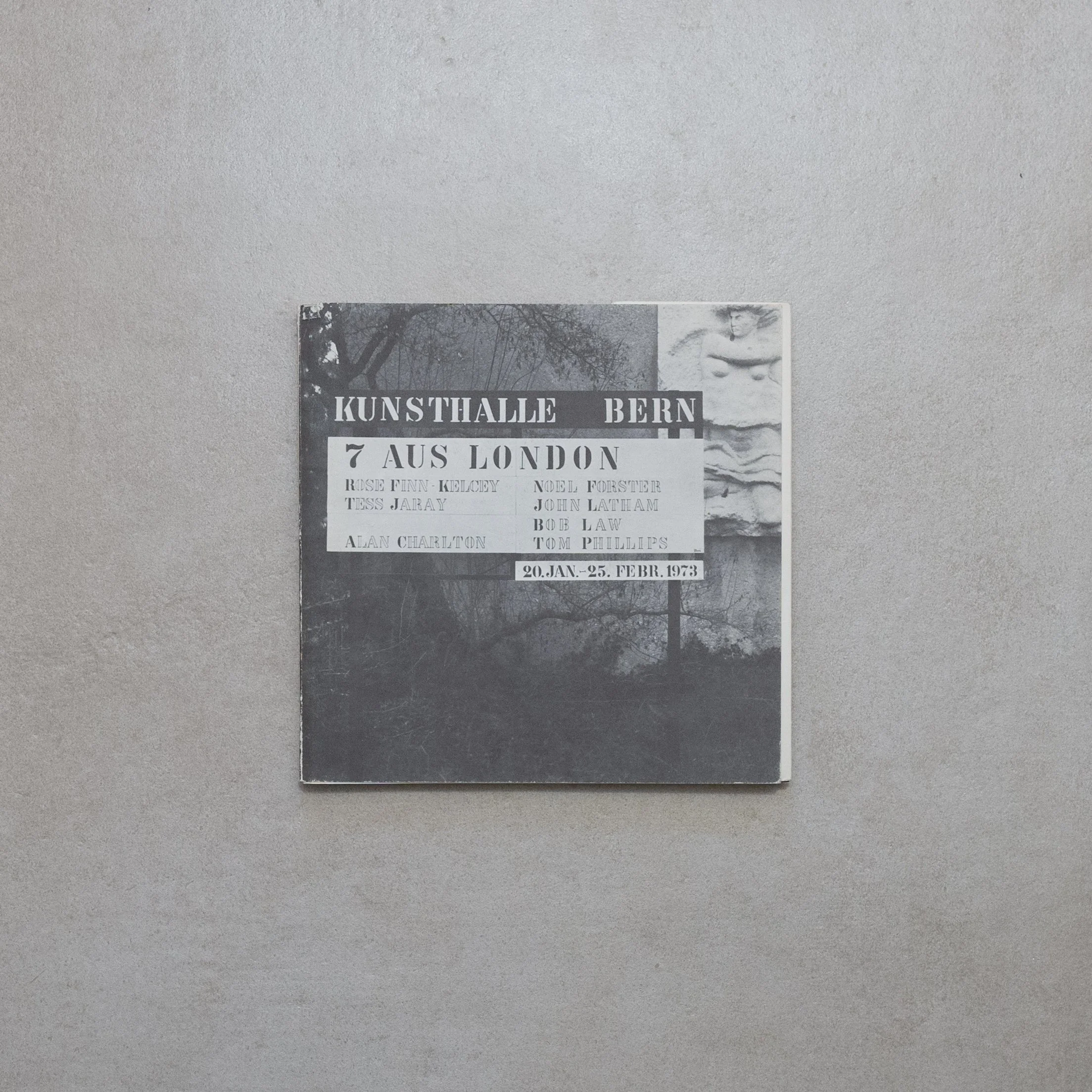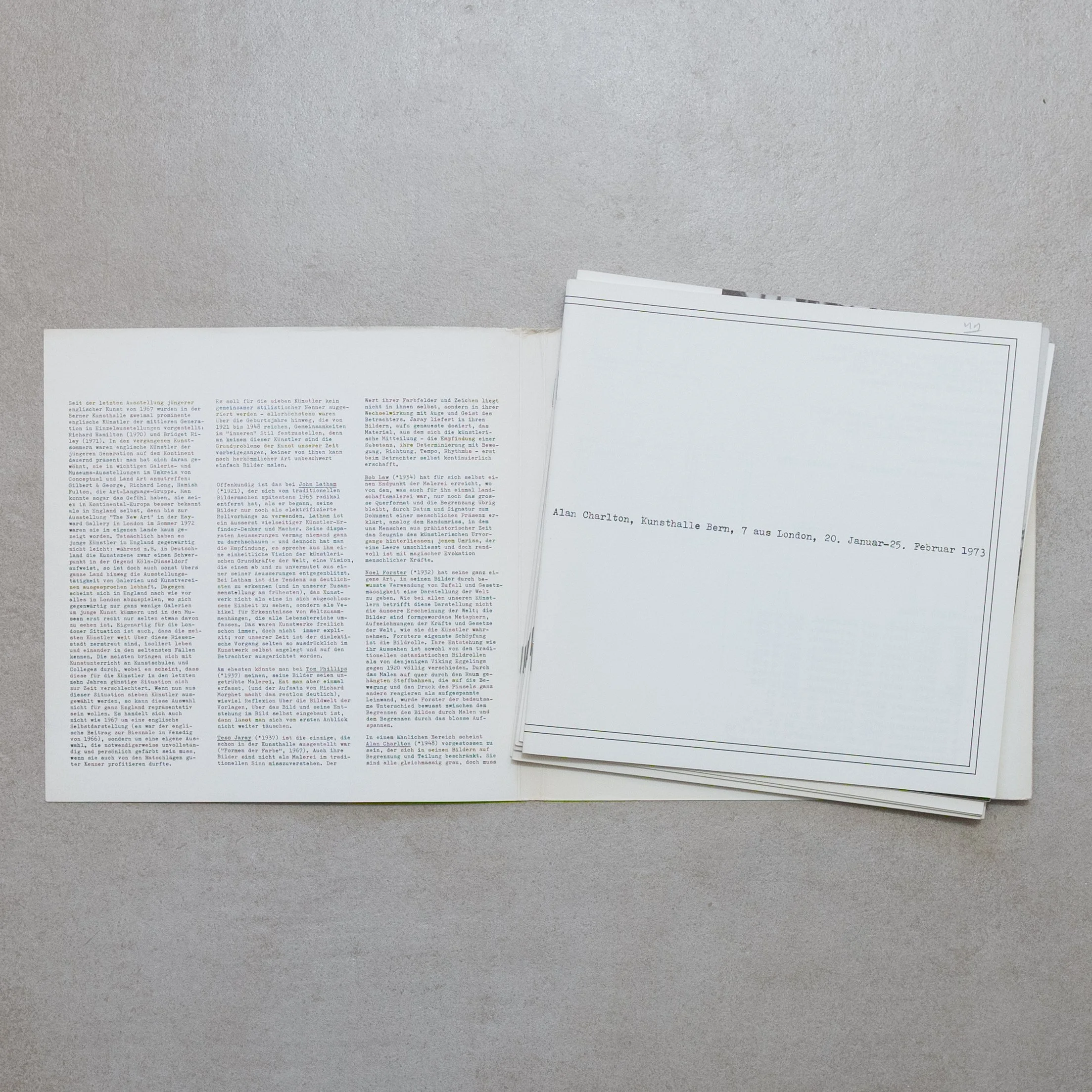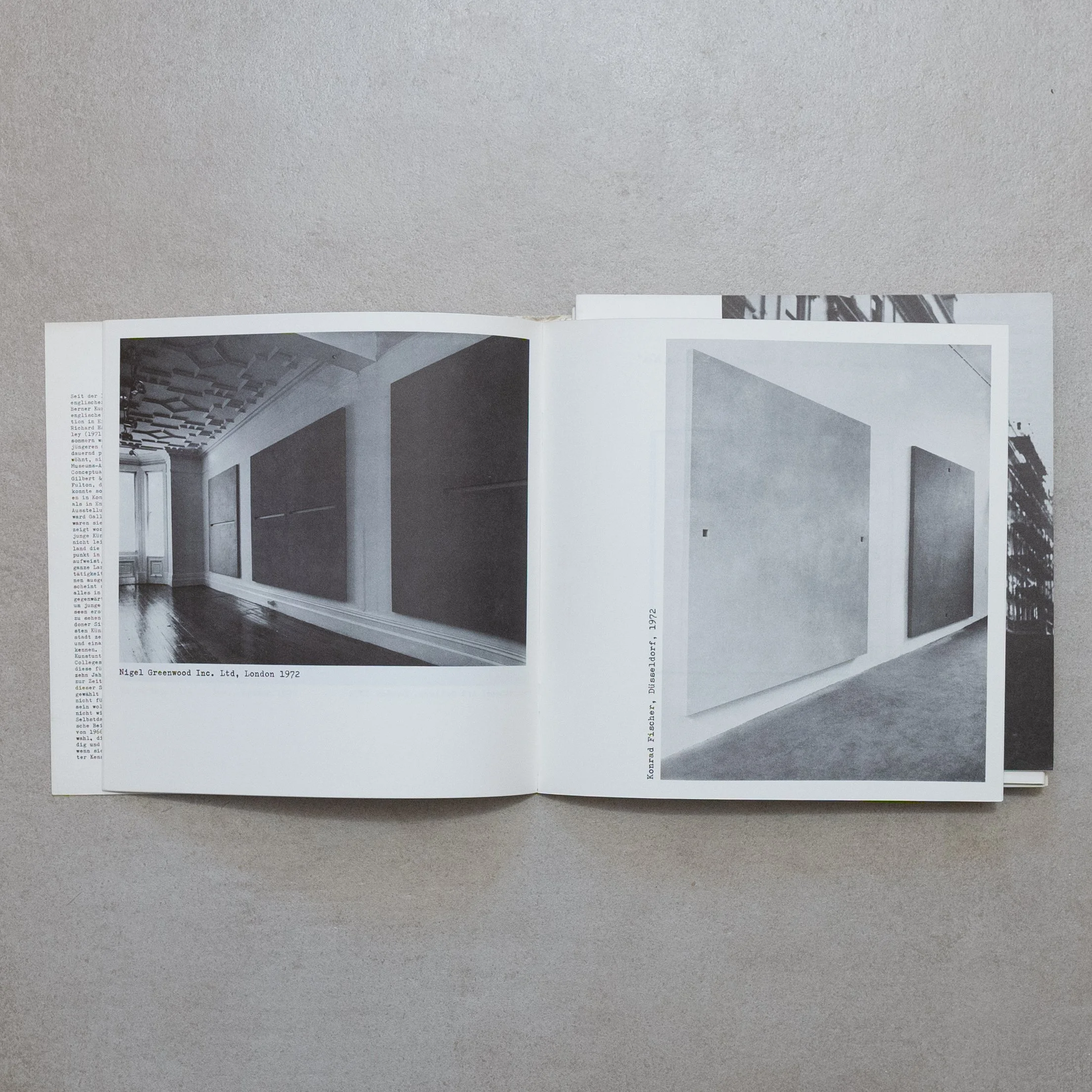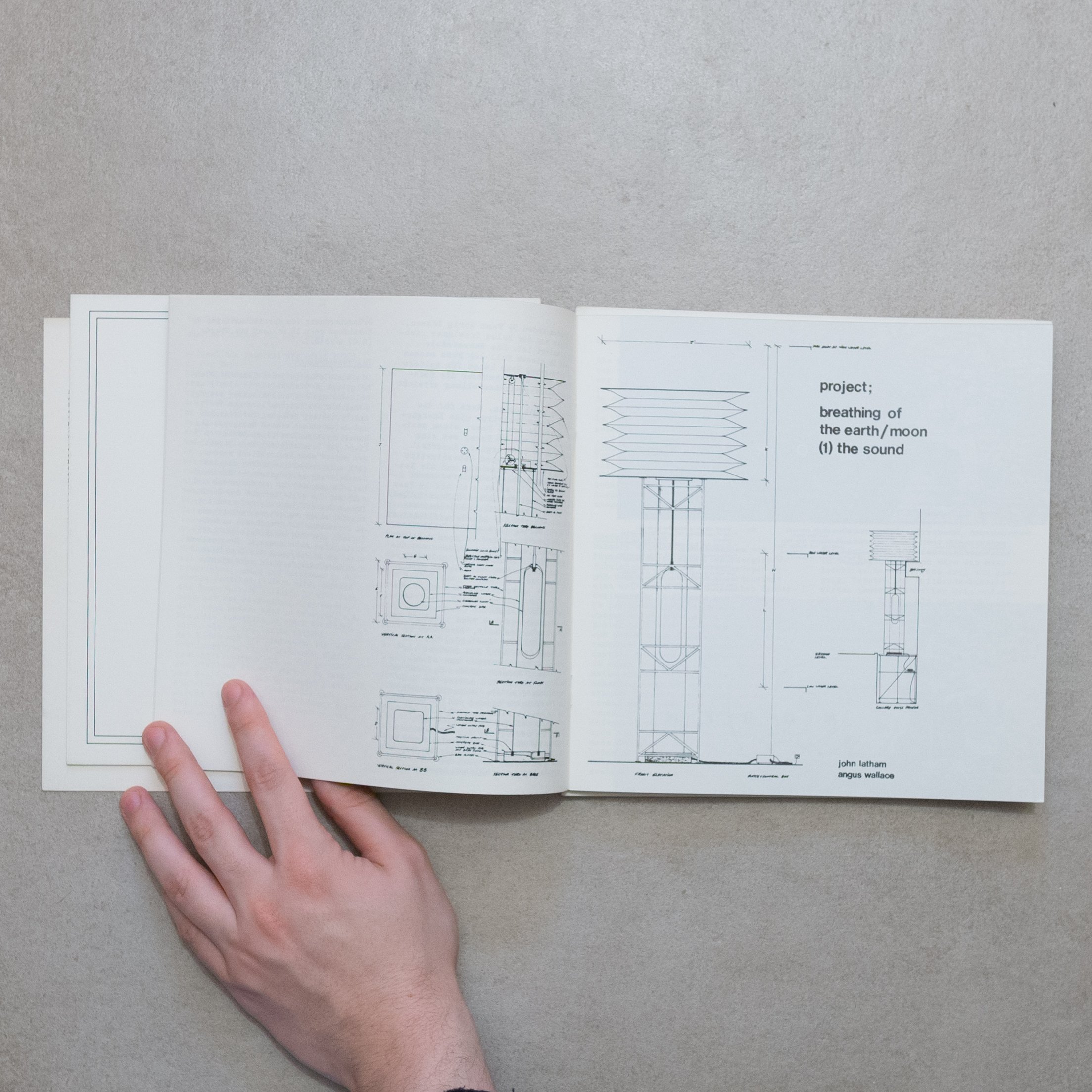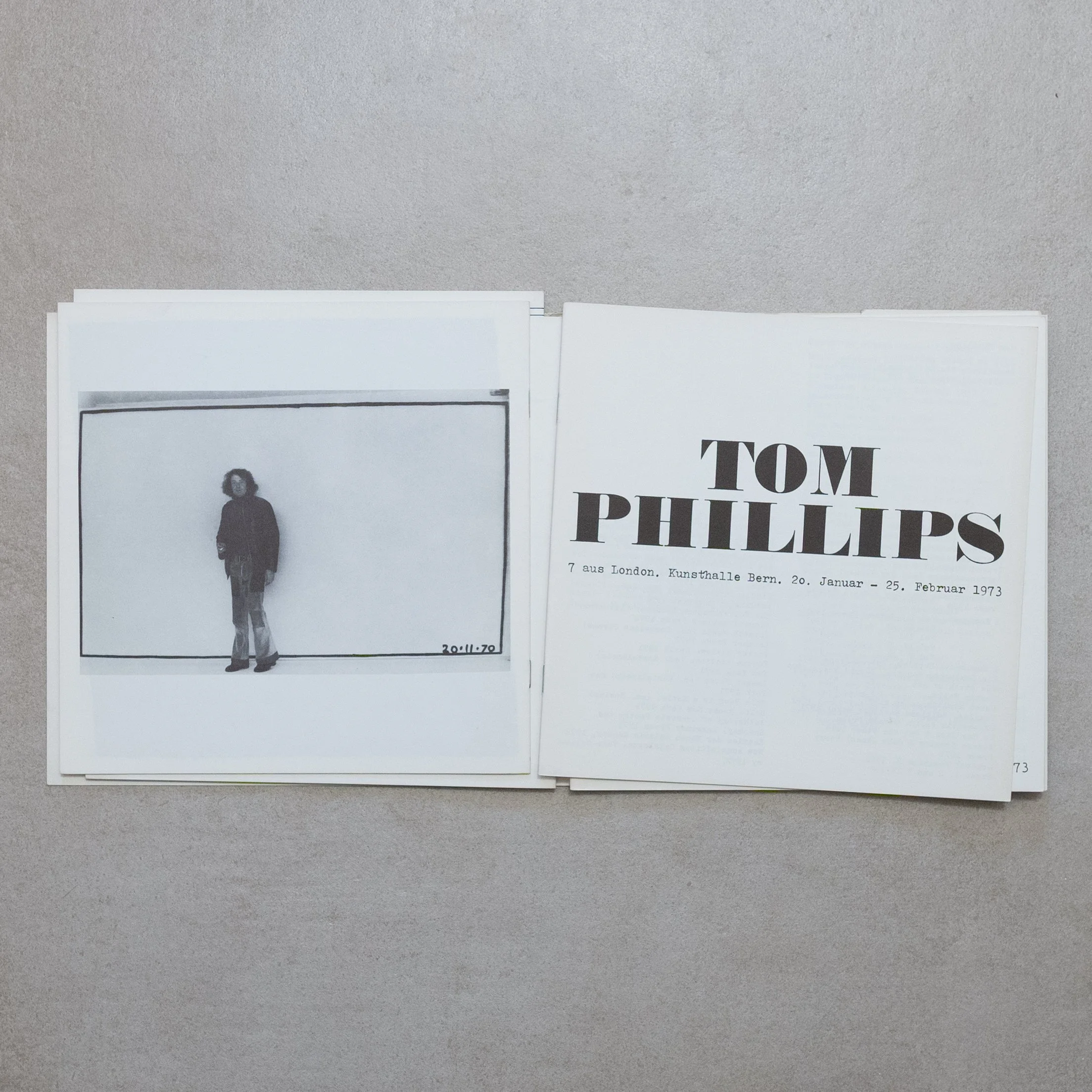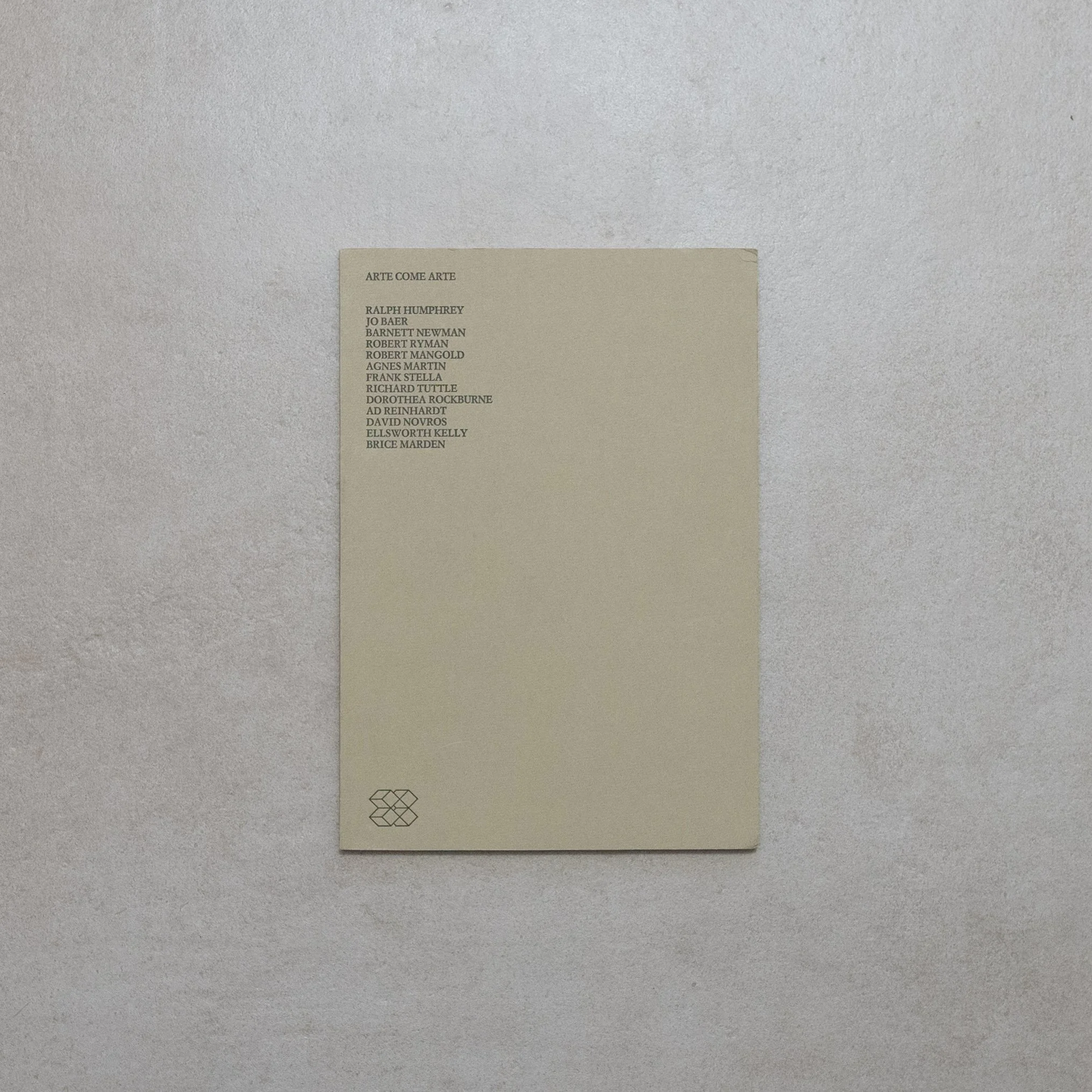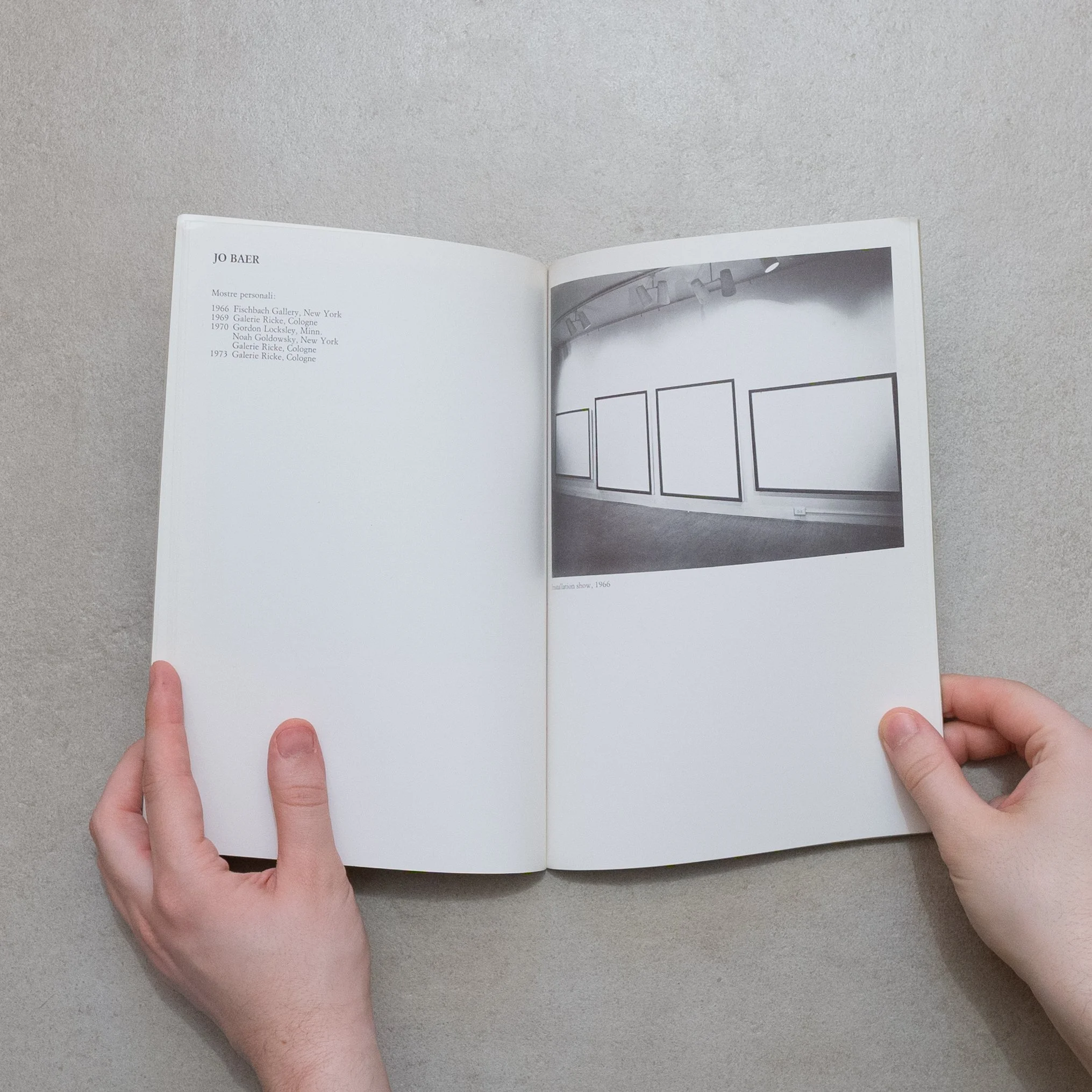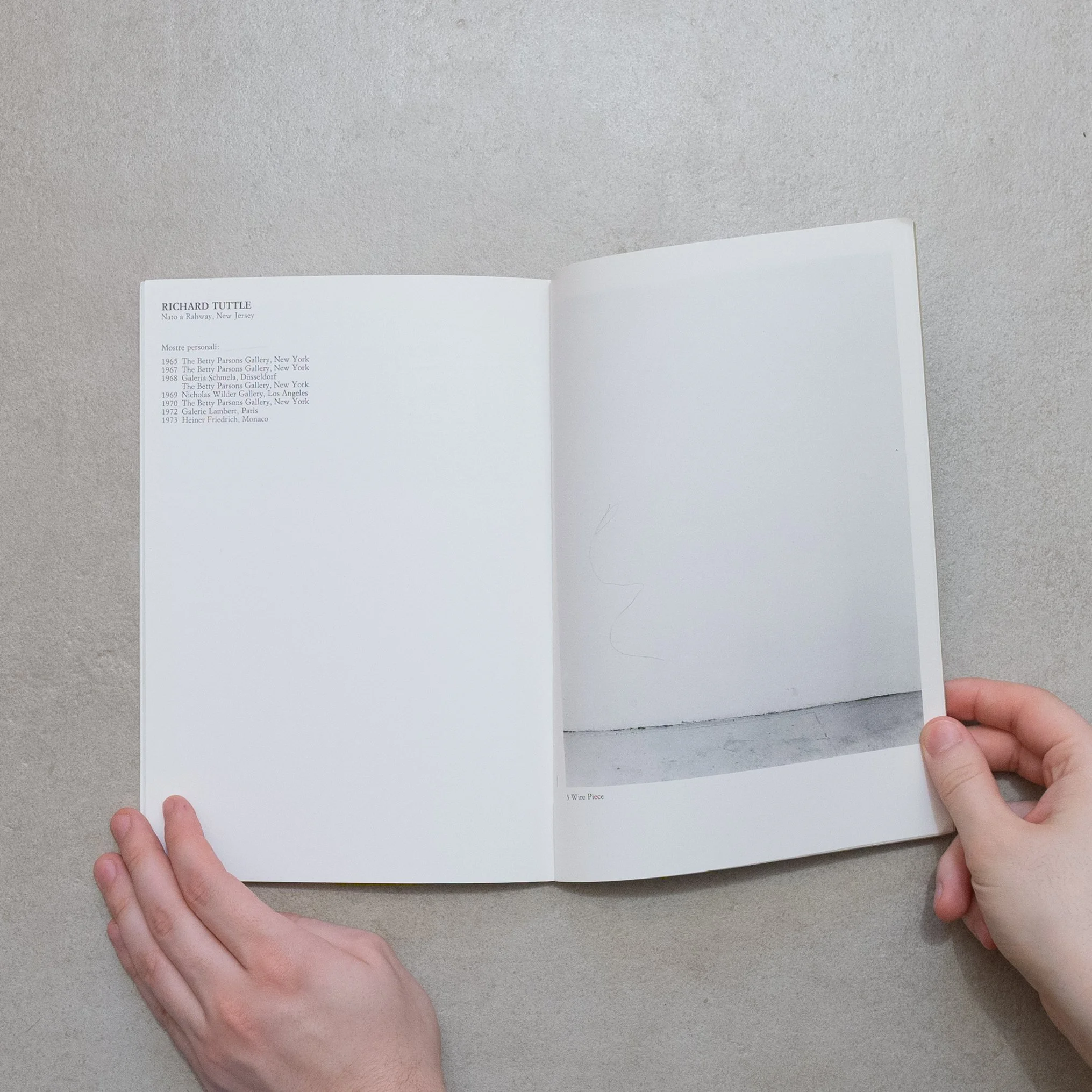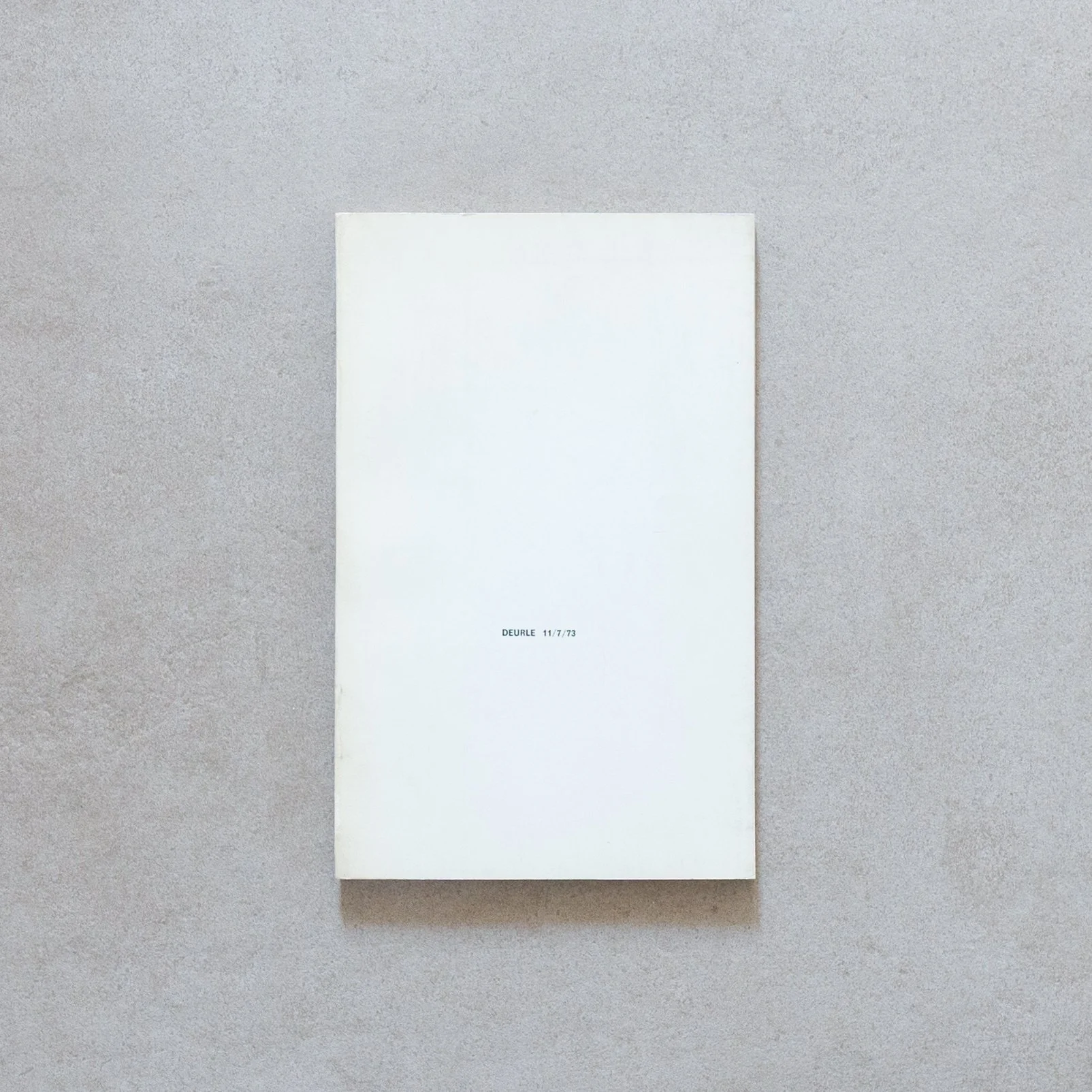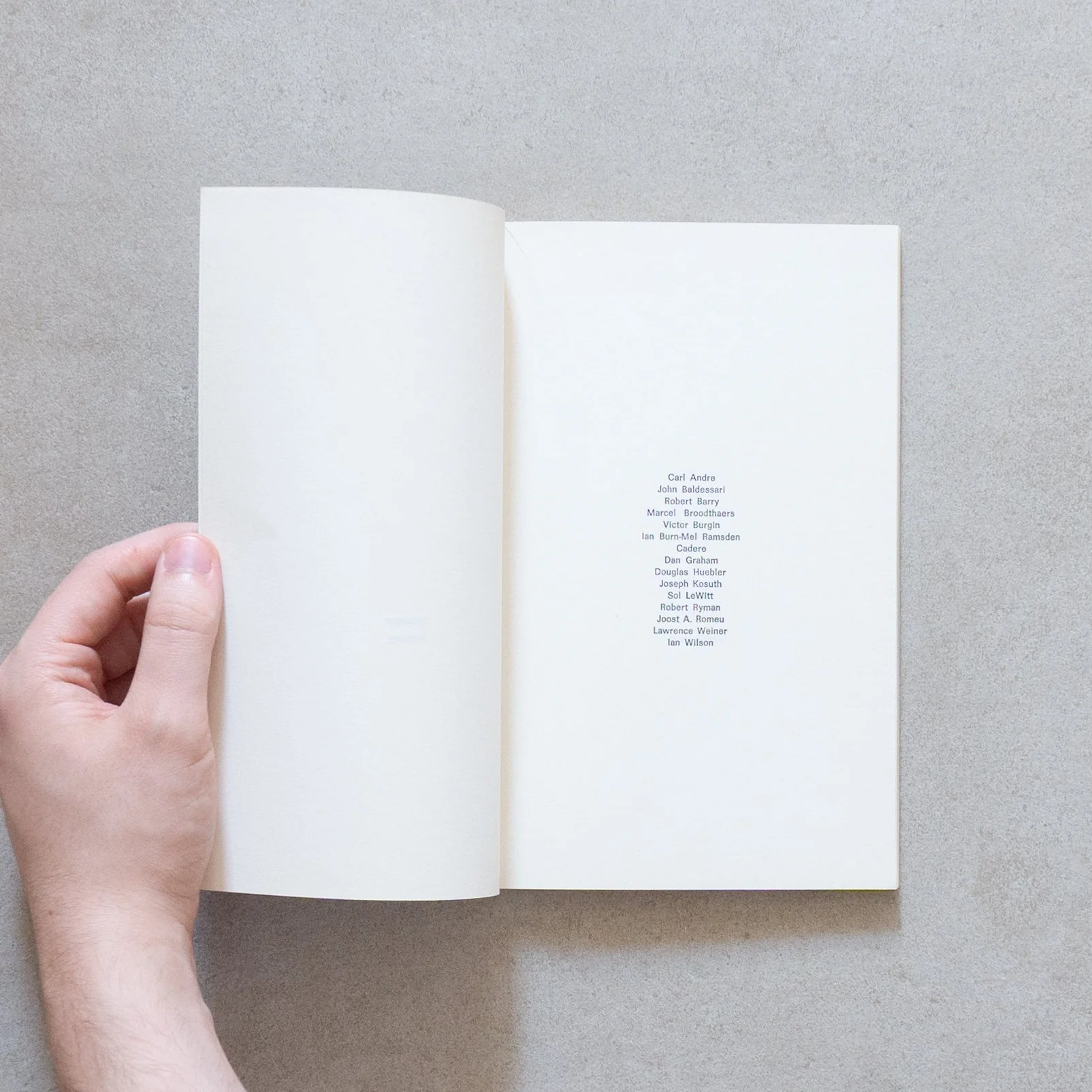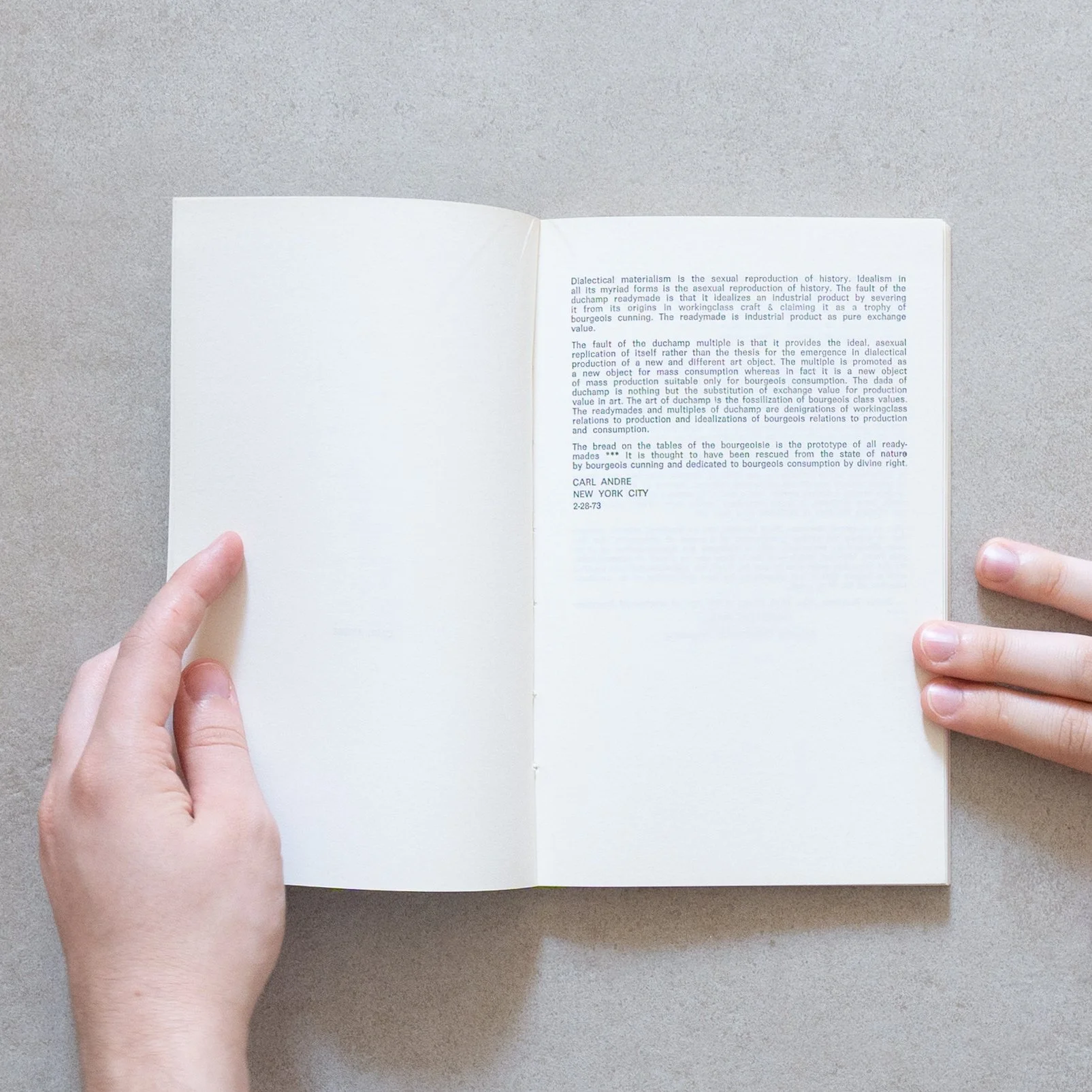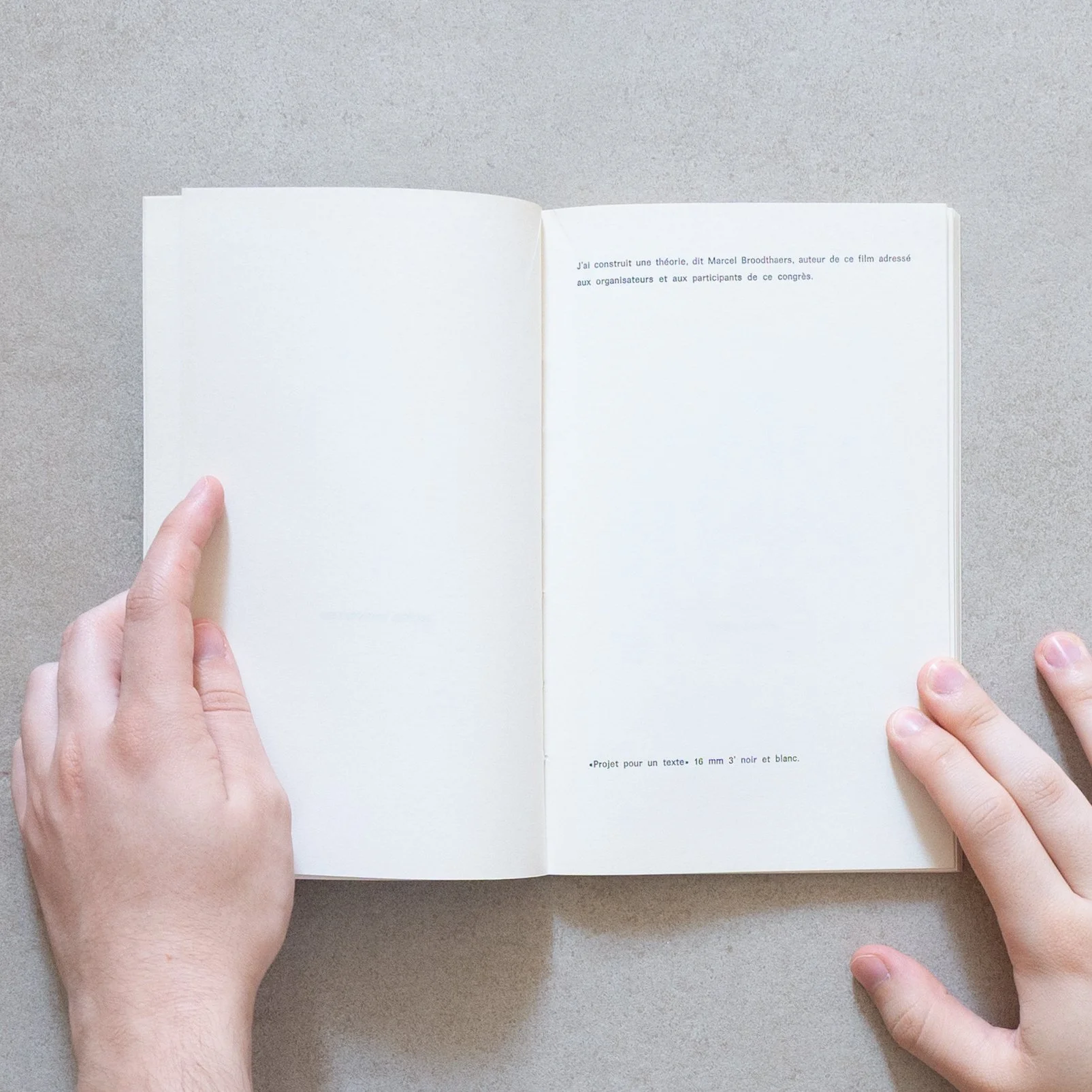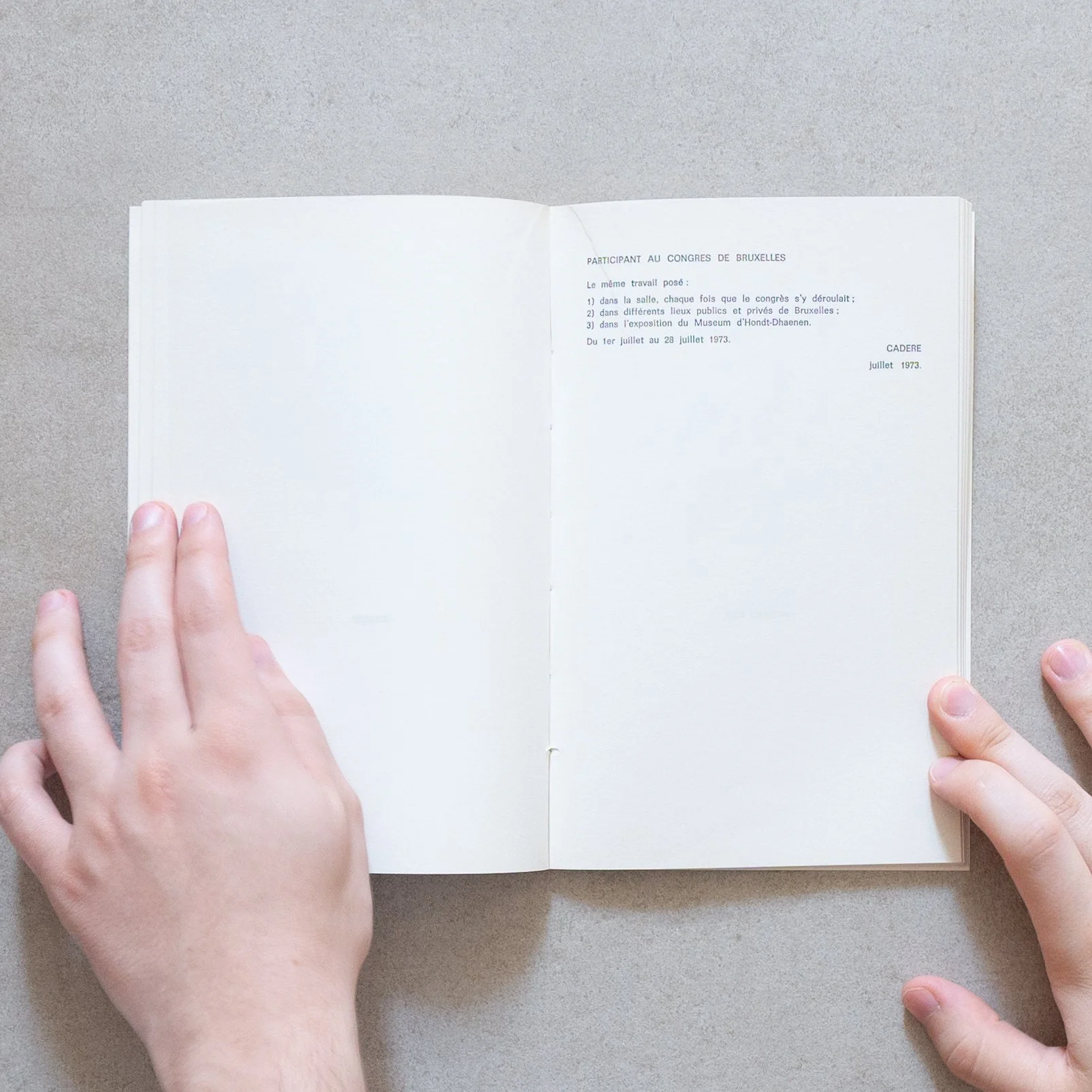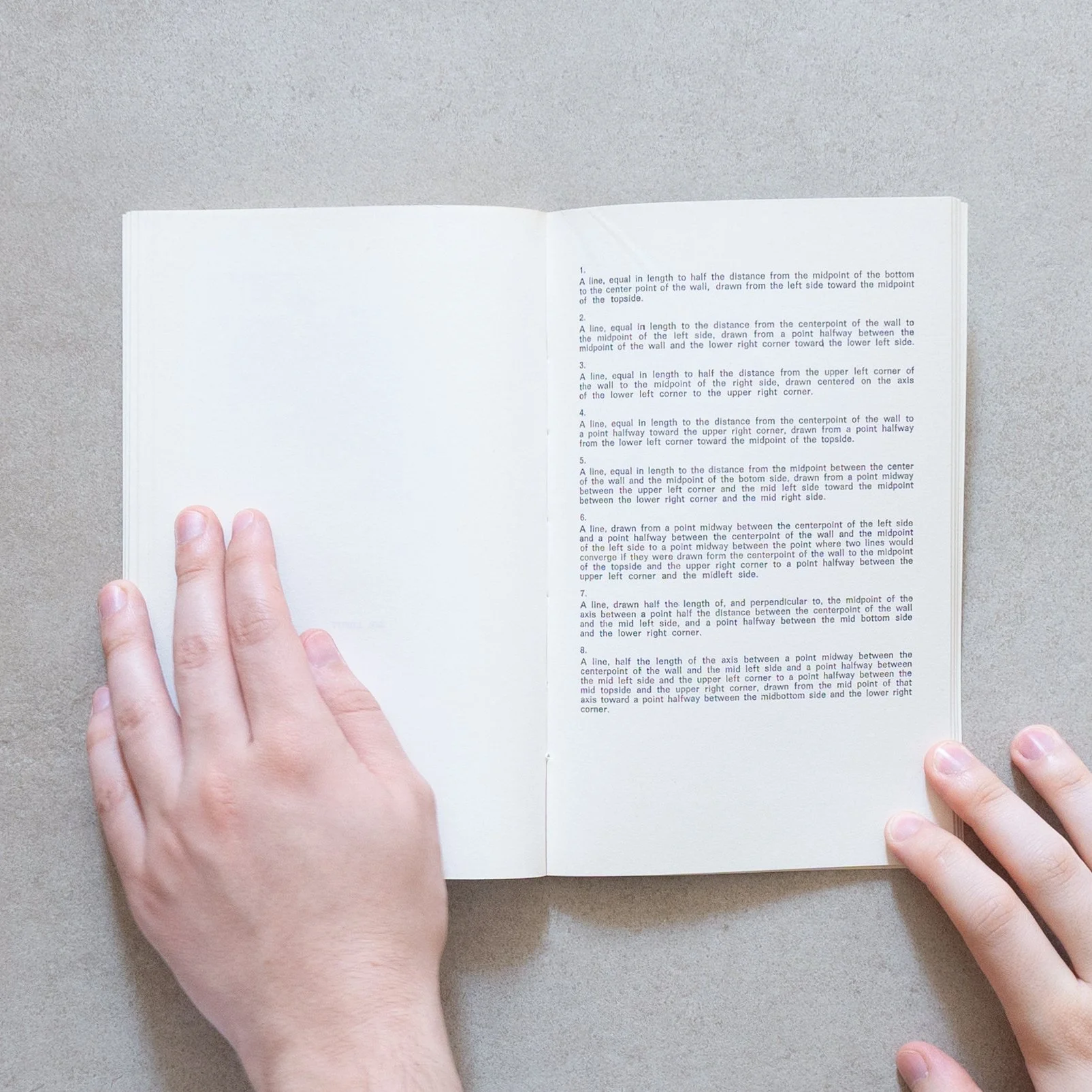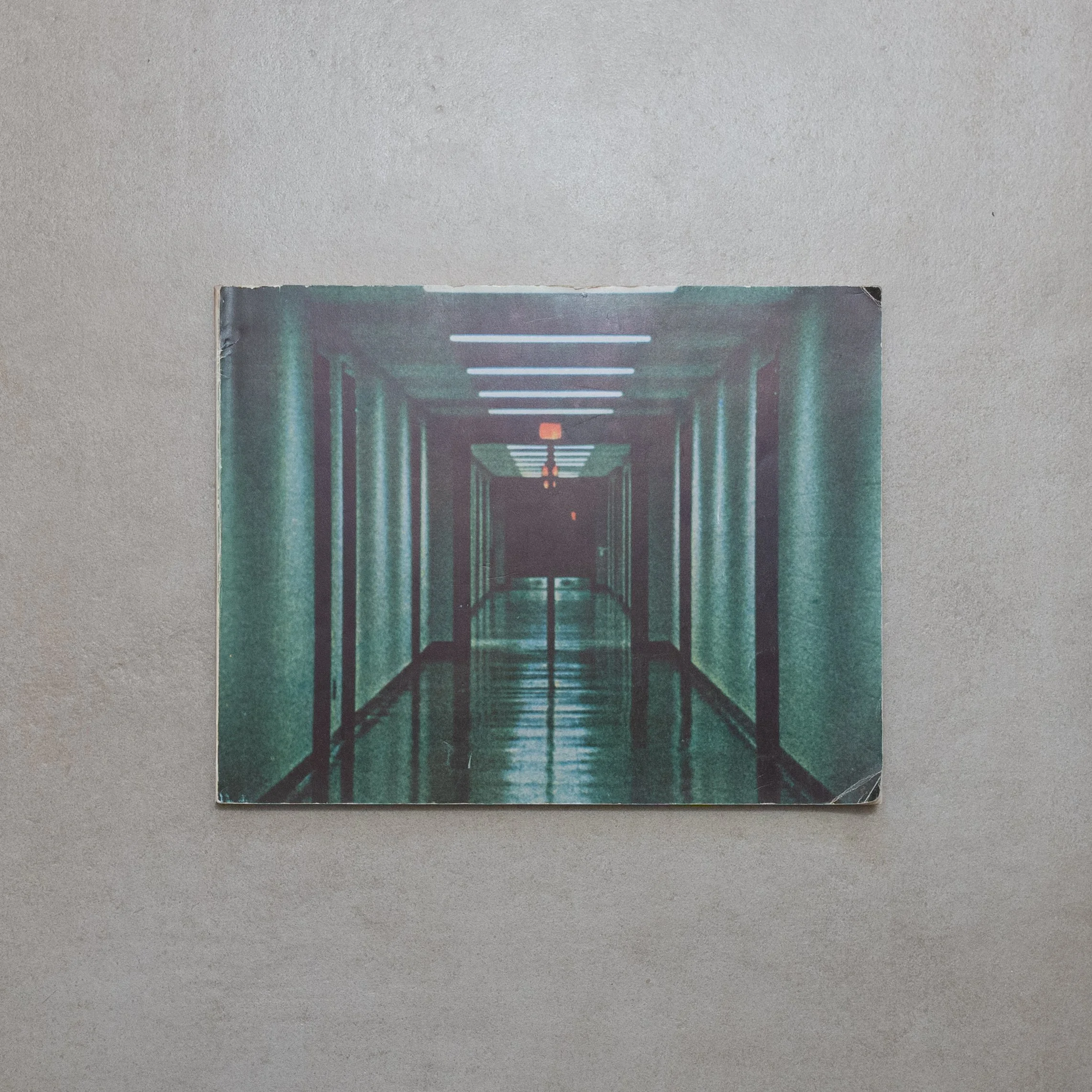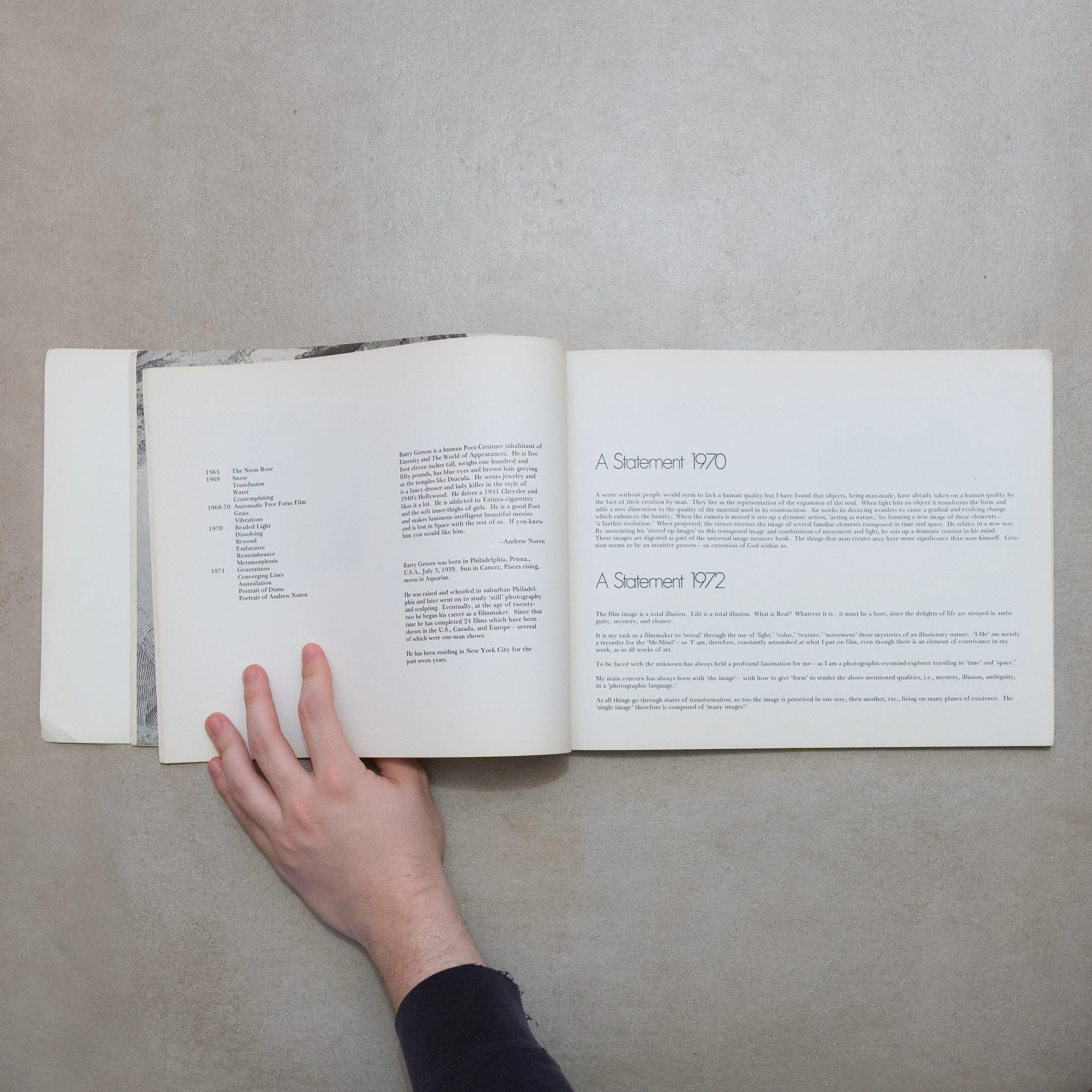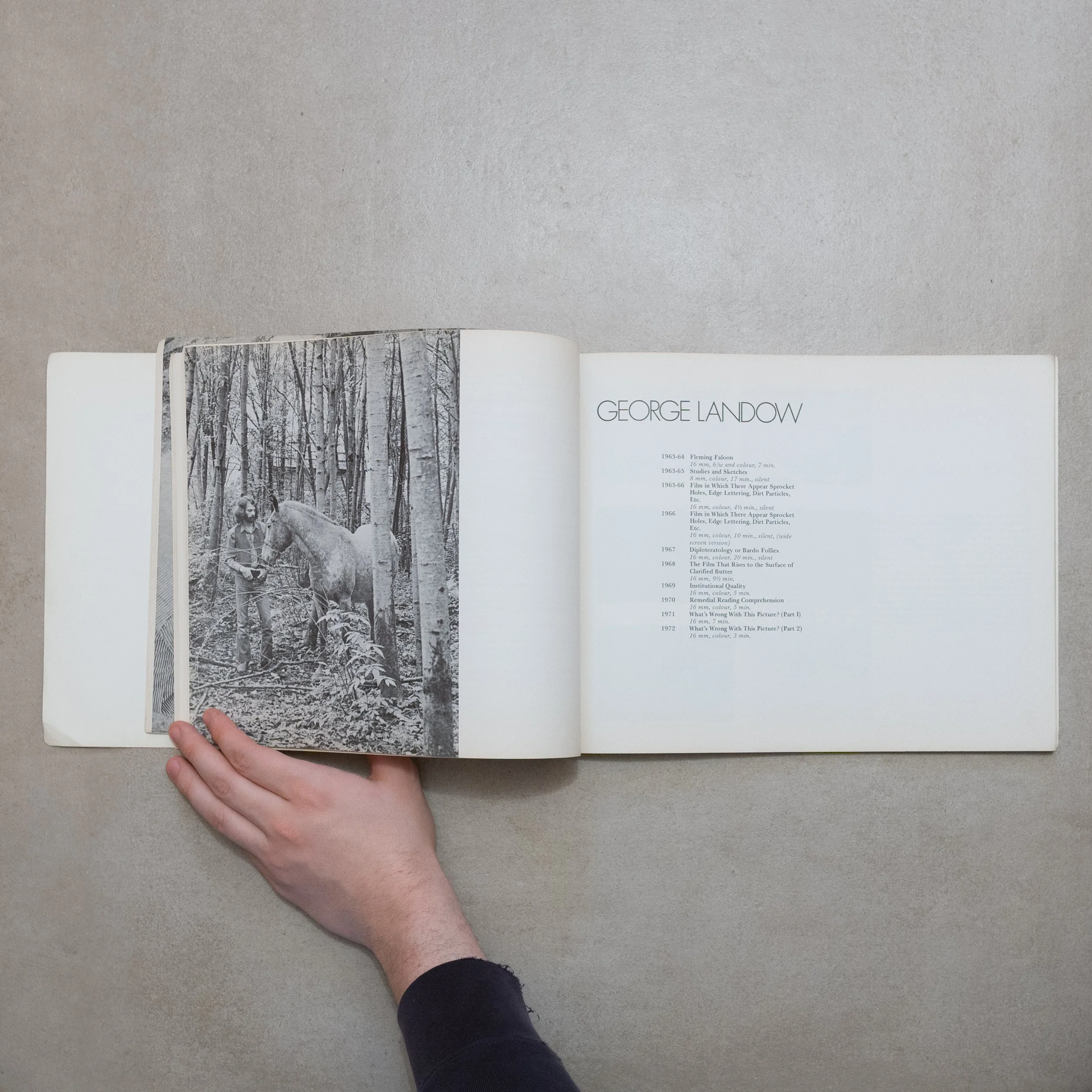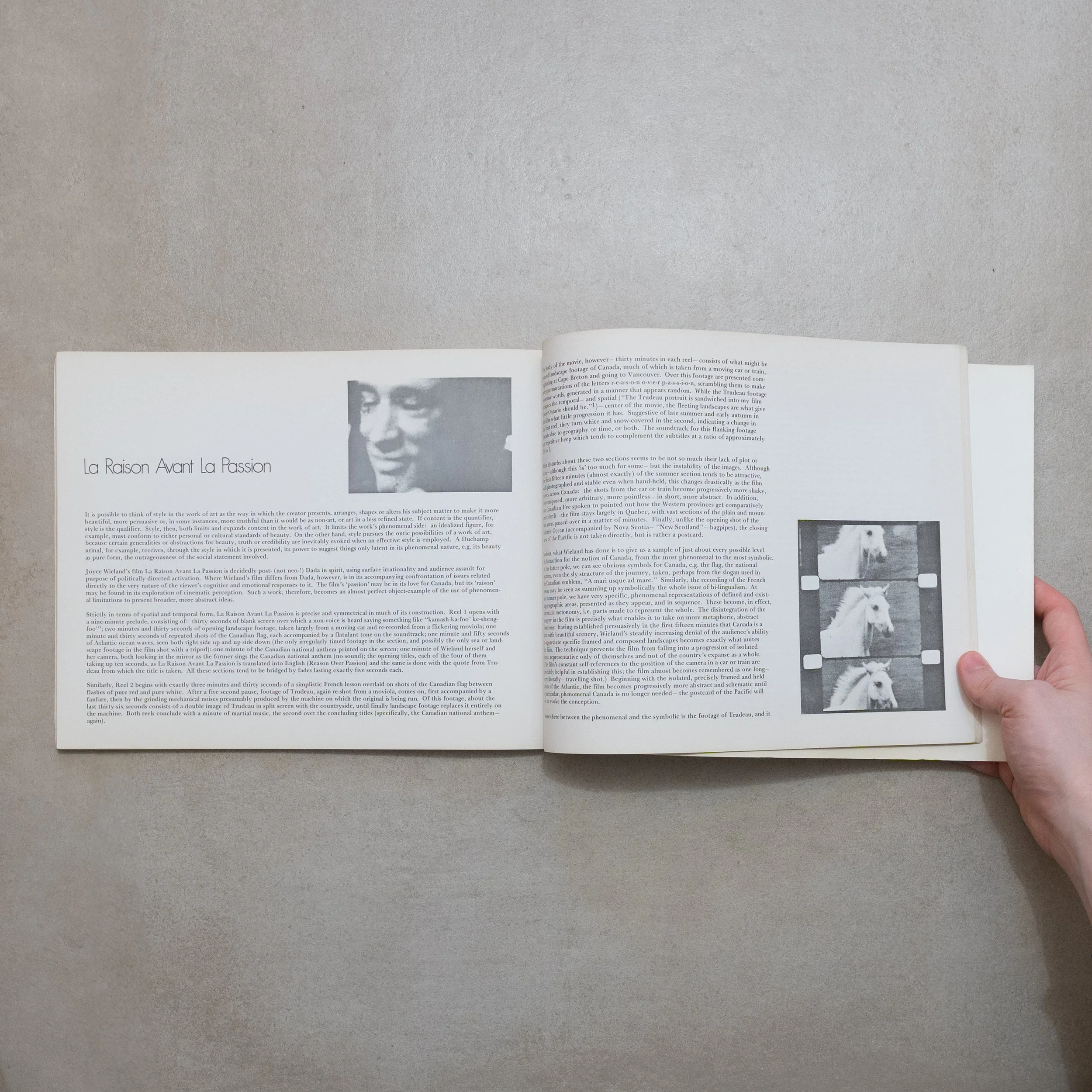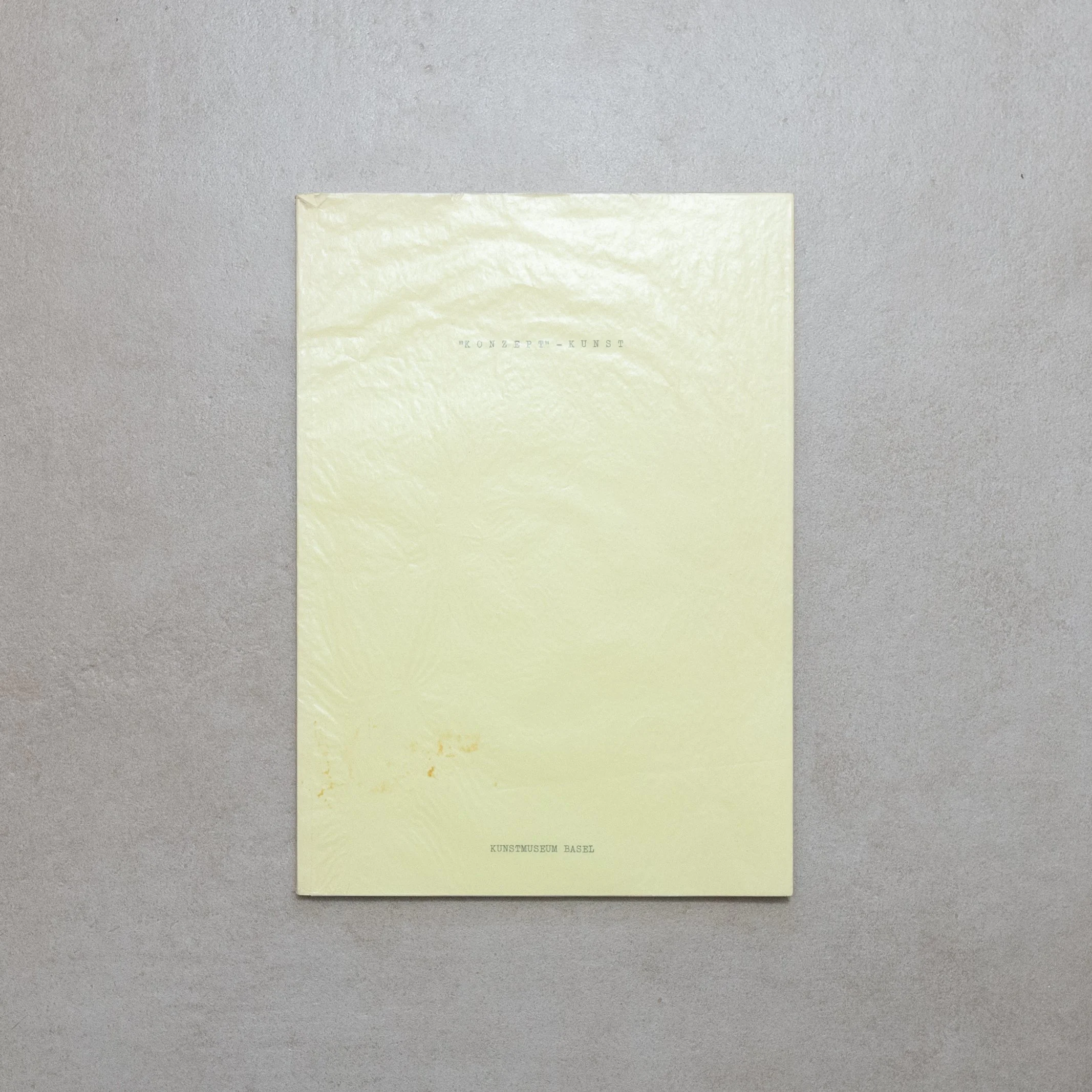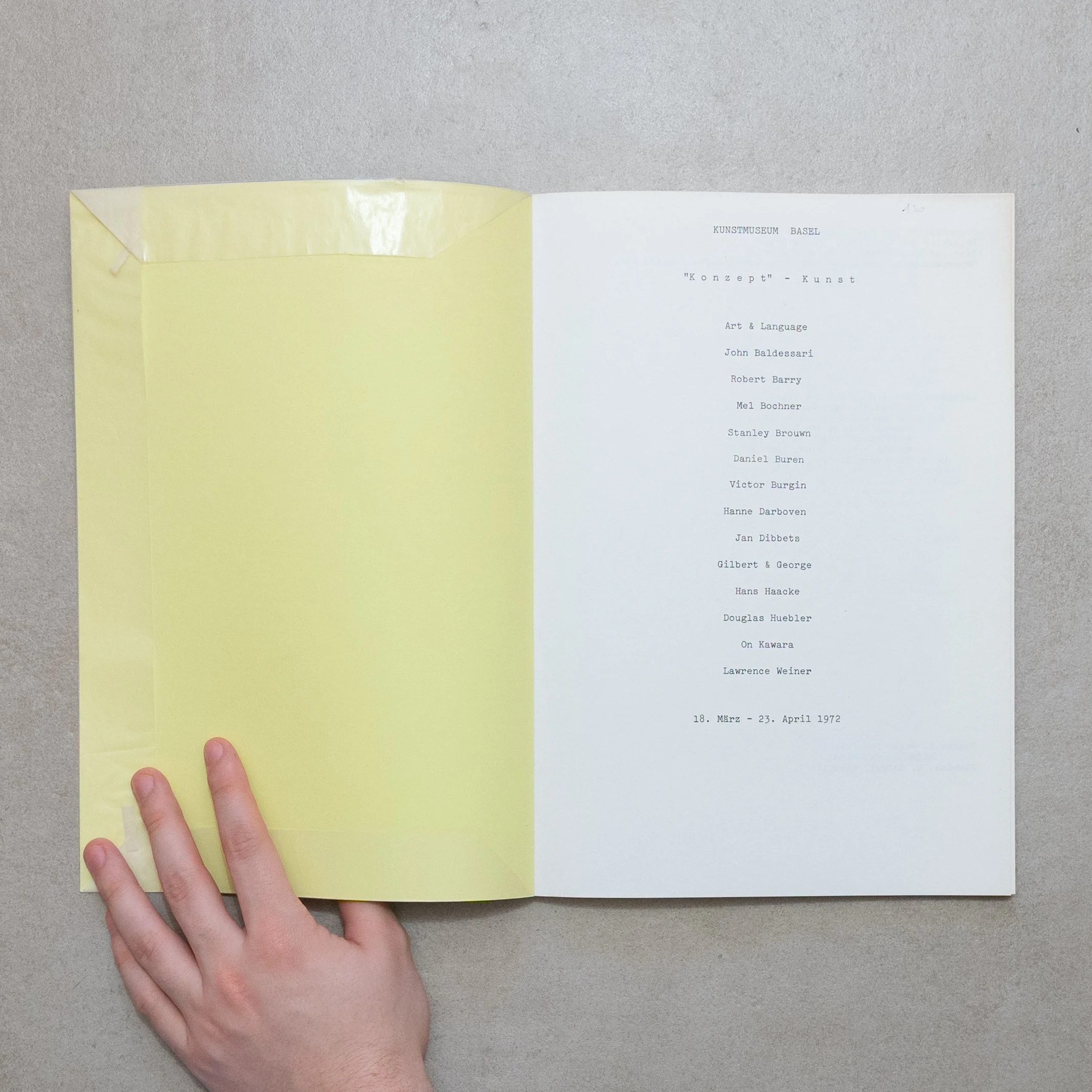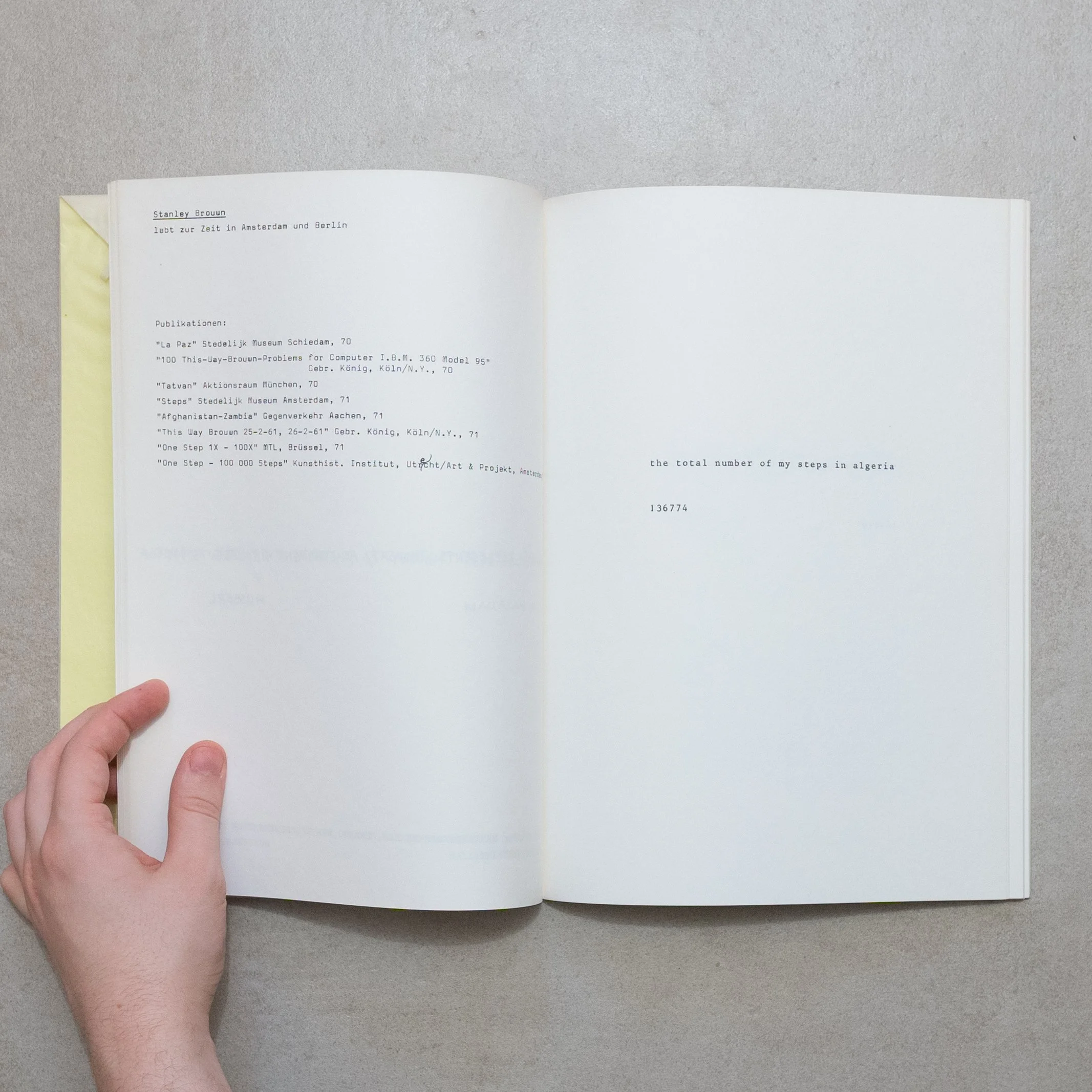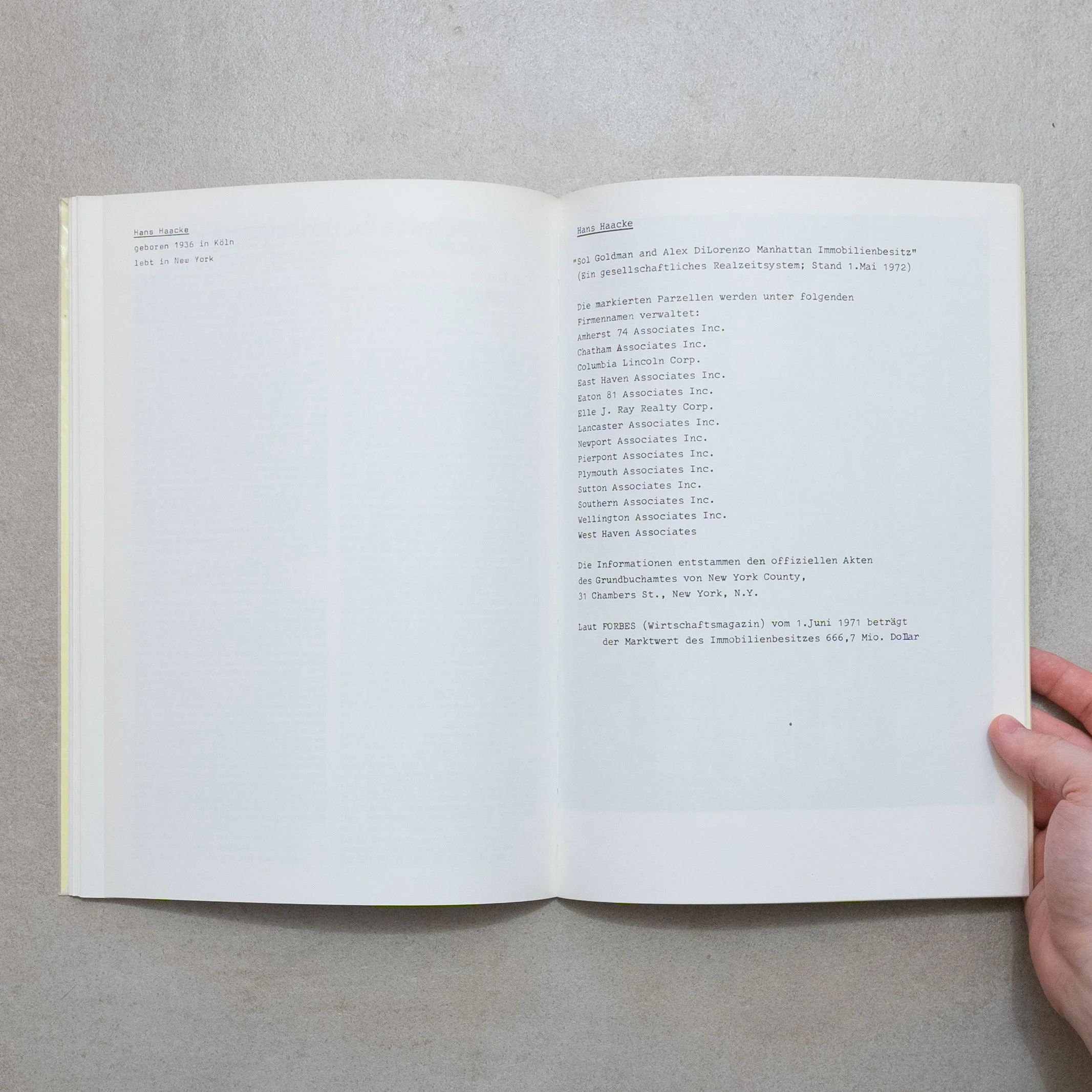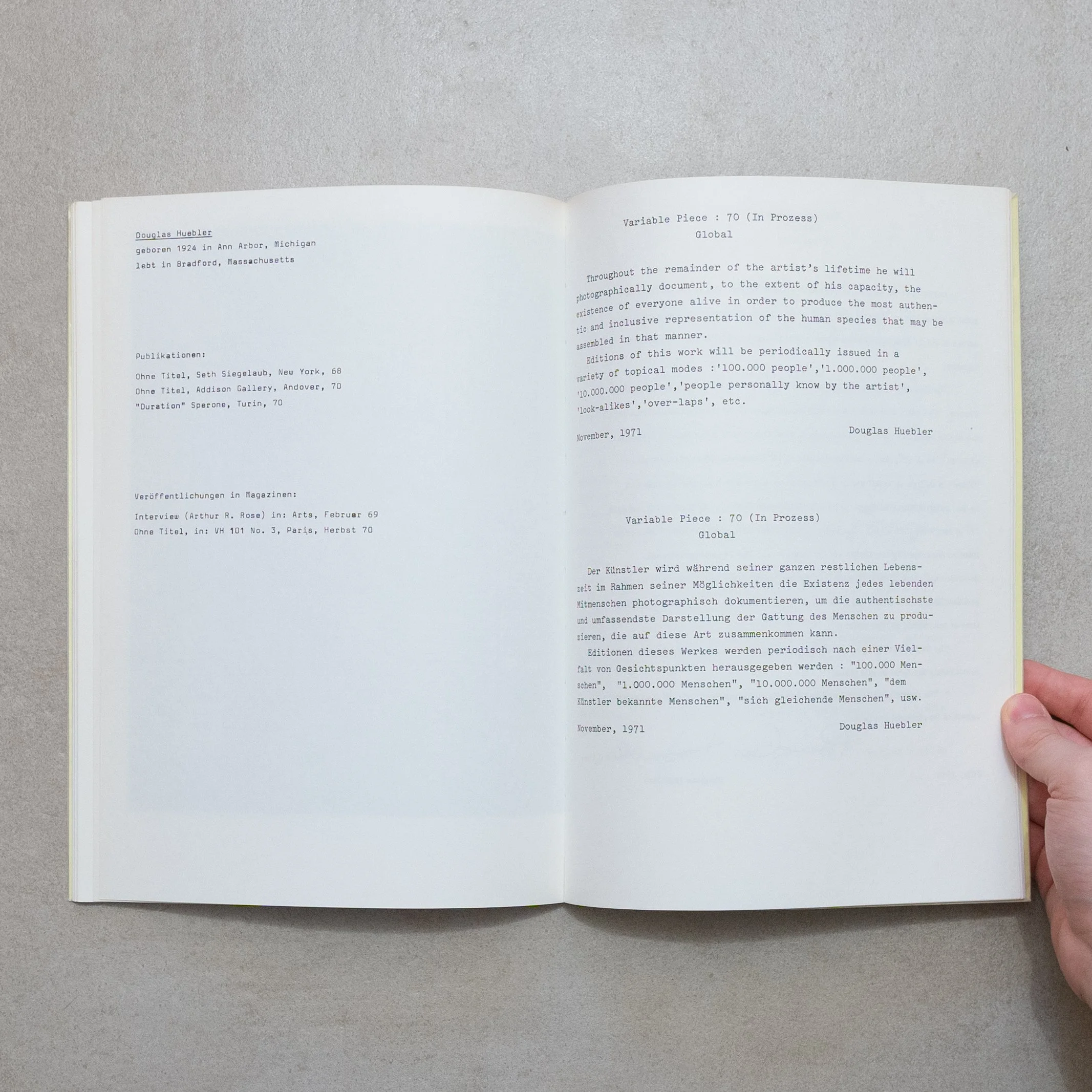"Barry's two-volume work is as minimalist as its title, which refers to the dual nature of the book, whose simplicity is carried over to its design. The two volumes look nearly identical and contain nothing more than a sequence on the front of each sheet (recto), while the back (verso) remains blank. Neither the outward appearance of the book nor the blank space reveal at first glance that Barry's reduced work actually delivers a complex description of what a book is, what expectations it fulfils and those that it can't. Each of the sentences, formed only from the neuter personal pronoun and the verb "to be", contains an adjective qualifying one of the properties of the book, which in sequence provide a detailed description of the object. Only the adjectives differ in the otherwise uniform sentences, pages and ultimately also the two volumes. In the second volume, the uniformity is furthermore broken by the fact that the indicative statements are replaced by subjunctive formulations indicating further qualities that a book might but does not necessarily have to have". (Joosten - Roettig)











